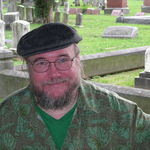The Central Committee for Conscientious Objectors had a small, dingy office up two or three flights of stairs. There were posters and fliers tacked up on the bulletin board. The man I had come to see – I long ago forgot his name – shook hands with me across a desk strewn with papers. He was the only person there, and he looked harried and distracted, but he was friendly.
It was 1972. I remember the weather was cold. His office was cold, too. I kept trying to pull my denim jacket tighter around me.
I told him I was gay. He said, “That’s cool. But don’t tell them that if you don’t have to.” He asked me a bunch of questions and checked my answers off on a form. He quickly figured out that I was the only male with my family name who could still have children. This apparently qualified me as a Sole Surviving Son – my loophole out of the draft. I was so relieved that I wanted to grab him and hug him, but since I’d just told him I was gay, I didn’t. Even in that joyous moment I noticed the big irony that I’d been freed up to do something I had no intention of doing – namely, to have children.
I wouldn’t turn 18 for a year, but I’d had a big scare put into me about Viet Nam. A guy who lived down the street from me, who people called Butchie, had come back full of gruesome stories about things he’d seen and done in the war. Most of the kids were awed, but I was very disturbed by his stories. I didn’t EVER want to do or even see things like that. I already wished I didn’t remember some of the abuse I’d suffered at home.
As it turned out, the draft would end at the beginning of my 18th year. But I didn’t know that then. I was deliriously happy that I wouldn’t have to go, that I’d be spared from having more horrors in my head. I had a fake ID that got me into bars, easily obtained in the ‘70s, and I used it that night to go out drinking. It seemed the best way to celebrate. Drinking ran in my family.
Later that night I staggered happily down the stairs to the subway stop near City Hall. I smiled at the giant clothespin sculpture that I usually considered an eyesore; I liked to tell people that, because of its proximity to City Hall, it should be clipped to a giant nose.
I paid the cashier, passed through the turnstile, and turned to go down the final flight of stairs to the train platform. At the foot of the stairs, a boy who looked to be my age was backing up against a wall. He looked disoriented and agitated. He was grunting and wheezing, waving his hands in the air. It seemed like he was trying to talk, but couldn’t. I could see three shadows on the floor advancing toward him. He was looking at whoever was casting them. He reached into his jacket pocket.
I heard a very loud bang that just about made me jump out of my skin. The kid fell on his back, head toward the foot of the stairs. I found myself standing over him. He was convulsing. I couldn’t see his face for all the blood. He’d been pulling a prescription bottle out of his pocket, and the pills it had held were scattered throughout the sticky red pool spreading all around him. I knew this had all happened very fast, but it seemed like things were unfolding in slow motion until the cop grabbed me and slammed my back against the metal banister.
He grabbed me by what would have been my lapels if denim jackets had any. He actually lifted me off of my feet and jammed his face so close to my mine that I can’t remember his features at all – just the impression that his face was made of granite. I never did see the faces of the other two cops.
His hot breath went right up my nose, and his voice was a husky combination of a whisper and a bellow. GET LOST, PUNK. YOU NEVER SAW THIS. GOT ME?
I was scared out of my mind. I did what I was told without thought. I left the station and walked for an hour all the way home, gasping for breath, eyes blurred by tears.
I soon learned from a newspaper report that the dead boy was an epileptic who had been having a seizure. They were approaching him, demanding an explanation for his “suspicious behavior,” when he reached into his pocket. He couldn’t talk at the moment; he was trying to explain by showing them his medicine. They thought he was pulling a gun. The story said there were no witnesses.
The story had already come out without my help. so I never came forward. I really had nothing to add, anyway. Rizzo was mayor, and under his regime you never called yourself to the attention of his brutal police force if you could avoid it.
And after all, I was one of the lucky ones. I’d never have to see the atrocities of war. I could thank God for that.
-- © 2010 by Jack Veasey
All rights reserved. This work is not to be reproduced or duplicated in any way without the author's written permission.
Subscribe to:
Post Comments (Atom)

No comments:
Post a Comment